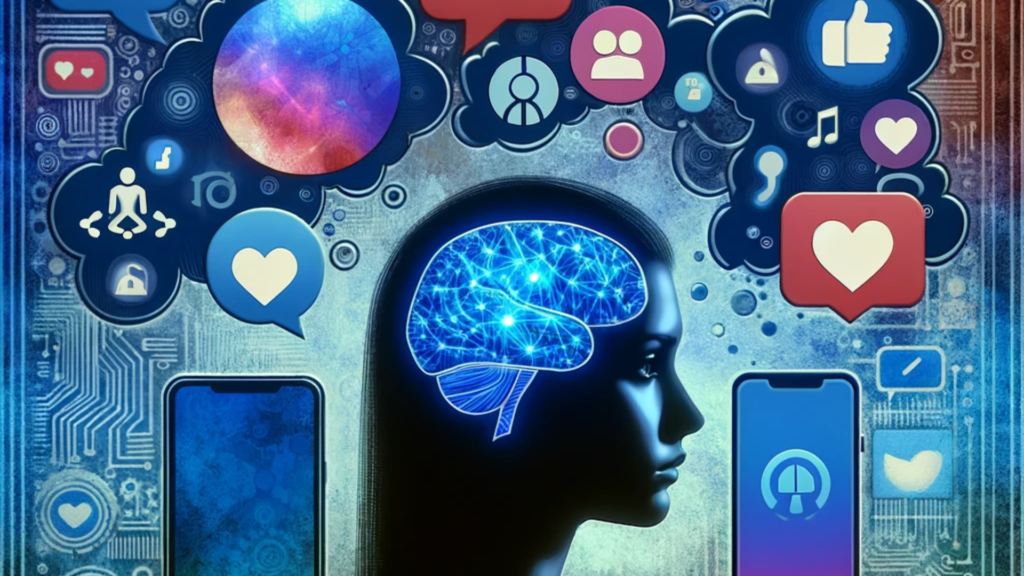Social media has revolutionized the way people communicate, share information, and interact with the world. From its humble beginnings to its current state as a global powerhouse, social media platforms have transformed personal and professional landscapes, influencing various aspects of daily life, business, politics, and culture.
The Rise of Social Media
Social media’s journey began in the early 2000s with the launch of platforms like Friendster and MySpace, which allowed users to create profiles and connect with friends. However, it was the advent of Facebook in 2004 that truly revolutionized the social media landscape. Facebook introduced a more refined and user-friendly interface, enabling people to share updates, photos, and videos with a broader audience.

Following Facebook, Twitter emerged in 2006, offering a unique platform for microblogging. Users could share short messages, or “tweets,” fostering real-time conversations on a global scale. This immediacy and brevity changed how information was disseminated and consumed, particularly in news and entertainment.
Instagram, launched in 2010, brought a visual dimension to social media, emphasizing photo and video sharing. Its focus on aesthetics and visual storytelling quickly garnered a massive user base, particularly among younger demographics. Meanwhile, platforms like LinkedIn catered to professional networking, allowing users to build career-related connections and share industry-specific content.
The Impact on Communication
Social media has fundamentally altered the way people communicate. Instant messaging, video calls, and live streaming have made real-time interaction possible, regardless of geographic barriers. This connectivity has brought people closer, enabling families and friends to stay in touch and fostering new relationships across the globe.
The rise of social media influencers has also transformed communication dynamics. Influencers, individuals with significant followings on platforms like Instagram, YouTube, and TikTok, can sway public opinion and consumer behavior. Their ability to engage audiences through authentic content has made them valuable partners for brands and marketers.
The Business Revolution
Social media has become an indispensable tool for businesses. Companies use platforms like Facebook, Twitter, and Instagram to reach potential customers, engage with existing ones, and build brand loyalty. Social media marketing strategies, including targeted ads, influencer partnerships, and content marketing, have proven effective in driving sales and increasing brand visibility.
Platforms like LinkedIn have revolutionized professional networking and recruitment. Businesses can post job openings, and professionals can connect with industry peers, share insights, and seek career opportunities. Social media analytics provide businesses with valuable data on consumer behavior and preferences, enabling more informed decision-making.
Political and Social Movements
Social media has played a crucial role in political and social movements. Platforms like Twitter and Facebook have been instrumental in organizing protests, spreading awareness, and mobilizing support for various causes. The Arab Spring, the Black Lives Matter movement, and the #MeToo campaign are examples of how social media can amplify voices and drive social change.
Politicians and governments also use social media to engage with constituents, disseminate information, and campaign for elections. While this has increased political participation and transparency, it has also raised concerns about misinformation, propaganda, and the impact of echo chambers on public discourse.
Challenges and Concerns
Despite its many benefits, social media presents several challenges. Privacy issues are a significant concern, with users’ data often being collected and used for targeted advertising or other purposes without their explicit consent. Cyberbullying, harassment, and the spread of misinformation are prevalent issues that platforms are continually trying to address.
The addictive nature of social media can also have negative effects on mental health. Studies have shown links between excessive social media use and anxiety, depression, and feelings of isolation. The pressure to present a curated, idealized version of oneself can lead to self-esteem issues and unrealistic comparisons.
The Future of Social Media
The future of social media is likely to be shaped by advances in technology, changing user preferences, and evolving regulatory landscapes. Augmented reality (AR) and virtual reality (VR) are expected to create more immersive social experiences. Artificial intelligence (AI) will continue to enhance content curation, customer service, and user engagement.
As concerns about privacy and data security grow, platforms will need to implement stricter measures to protect users’ information. Regulatory bodies may impose more stringent guidelines to ensure transparency and accountability.
Social media platforms will also need to adapt to changing demographics and cultural shifts. As younger generations prioritize authenticity and social responsibility, platforms may focus more on fostering genuine connections and supporting social causes.
Conclusion
Social media has profoundly impacted every aspect of modern life, from communication and business to politics and culture. Its evolution continues to shape how we interact with the world and each other. While challenges remain, the potential for positive change and innovation in social media is immense, promising a future where connectivity and community are at the forefront of the digital experience.





